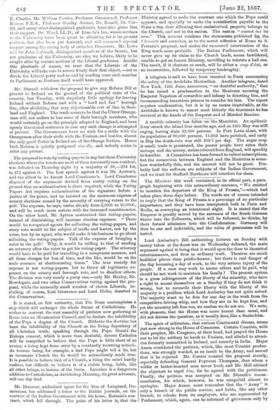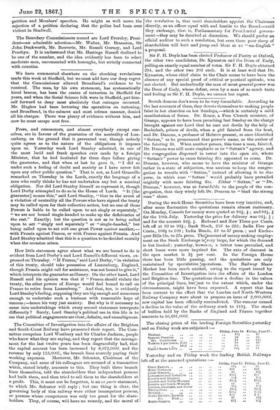The spirit of militarism, that curious Continental disease, seems just
now strong in the House of Commons. Certain Comtists, with their prophet, Mr. Congreve, at their head, had prayed the House not to let the soldiery be harsh to Fenians, and alluded to atroci- ties formerly committed in Ireland, and recently in India. Major Anson considered the petition, which, like most Comtist produc- tions, was strongly worded, as an insult to the Army, and moved that it be rejected. Mr. Forster resisted the proposal stoutly, especially defending General Peyronet Thompson, than whom a wilder or better-hearted man never lived, and Mr. Mill advised the objectors to expel him, for he agreed with the petitioners. Finally, the petition was accepted on Mr. Disraeli's recom- mendation, for which, however, he was compelled almost to apologize. Major Anson must remember that the " Army " is only a branch of the public service, and liable, like any other branch, to rebuke from its employers, who are represented by Parliament, which, again, can be informed of grievances only by 'petition and Members' speeches. He might as well move the rejection of a petition declaring that the police had been• over violent in Shadwell.































 Previous page
Previous page